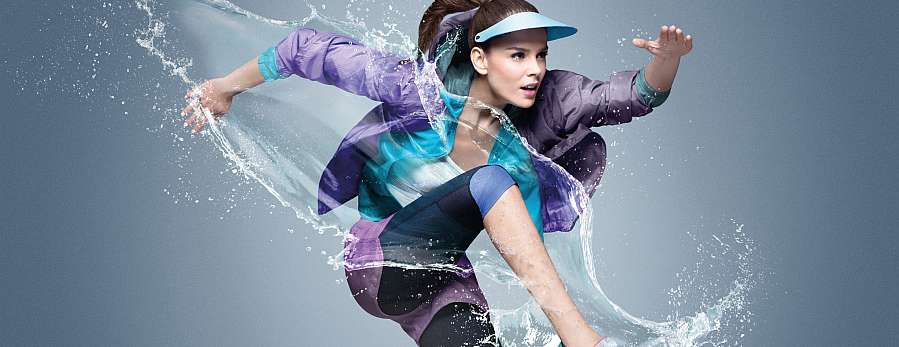Textile chemistry
Bayer MaterialScience brings magic to materials

PU technology is used to enhance and transform many of the fabrics that surround us. Every year, around 7 billion pairs of shoes, 2 billion bags and 1 billion garments are produced with PU leather and other PU coated fabrics. (1) With pure waterborne PU technology and rich application expertise, Bayer MaterialScience inspires brand owners to explore new possibilities in the design and creation of “magical” PU coated fabrics with their INSQIN® service portfolio.
“Today is an exciting and pivotal day for all textile-consuming industries, as we look ahead to an innovative and sustainable way of producing coated fabrics with INSQIN®. Not only are we now able to join efforts with brand owners to shape a more productive innovation process, we are also contributing to a practical solution that addresses the ongoing battle between sustainability and scalability,” said Nicholas Smith, Global Head of Textile Coating at Bayer MaterialScience.
Inspiring a new generation of PU coated fabrics that enable disruptive innovation
Bayer invented PU over 75 years ago and has a leading global status in its application in the coating of textiles. Closely cooperating with industry partners aiming to instigate and drive change, Bayer helps its customers to stay ahead of competition through product differentiation. INSQIN® presents a wide range of possibilities to enhance and transform fabrics which meet and even exceed the design requirements for the fashion industry and the performance requirements of the sports world, in applications as diverse as PU leather, functional fabrics or high-performance printing, to name just a few.
Enabling a new way of value chain collaboration
Through INSQIN®, Bayer MaterialScience provides brand owners with a turnkey solution for the development and scaling of new waterborne PU coated fabrics. With state-of-the-art pilot-lines at dedicated lab spaces in China and Germany, Bayer’s global team of textile experts is well-positioned to lead the R&D and testing of new coated fabrics. By working directly with brand owners and supporting their sourcing and manufacturing partners, Bayer will be addressing a wide array of brand owners’ concerns, including product design, manufacturing innovation and environmental performance.
“Our hope is that by interacting directly with brands as well as with manufacturers, we can reshape material innovation in the apparel and footwear industry. We are committed to reducing harmful effects on people and the environment, by enabling manufacturing that eliminates worker exposure to solvents and lowers resource consumption,” said Nicholas Smith.
INSQIN® sets new standards for material sustainability
INSQIN® enables the manufacture of all kinds of coated fabric to be carried out without solvent. The social and environmental benefits of waterborne PU technology are of particular importance to PU leather, which has been one of the largest sources of environmental and health hazards amongst all types of coated fabrics. Globally, more than 4 billion square meters of PU synthetic leather are manufactured per year (2) to meet the fast growing demand and China manufactures 90 percent of this figure (3), putting a heavy strain on local ecosystems. Worker exposure to solvents needs to be addressed and pollution risks need to be minimized. Sustainability goals will be hard to achieve if the industry continues to use the mainstream solvent-based processes to produce PU leather. INSQIN® waterborne PU technology not only enables PU leather to be manufactured without solvent, it also reduces water consumption by up to 95 percent and energy consumption by up to 50 percent in the coating process. (4)
In addition, Bayer is also developing the INSQIN® Partner Manufacturer Program, a quality assurance scheme in which Bayer helps manufacturers improve sustainable practices, such as reducing resource consumption in coating processes and safe chemical management. Manufacturers will be audited in terms of consistency and high standards in the application of waterborne PU technology, allowing brand owners to source newly developed materials via an INSQIN® partner list with high efficiency and better transparency in the value chain.
INSQIN® is a typical example of Bayer MaterialScience’s new sustainability concept, which aims to improve people’s lives and create value, while at the same time conserving resources and minimizing the impact on mankind and the environment.
Source:
(1) Bayer estimation
(2) China Synthetic Leather Association
(3) China Synthetic Leather Association
(4) Bayer estimation
